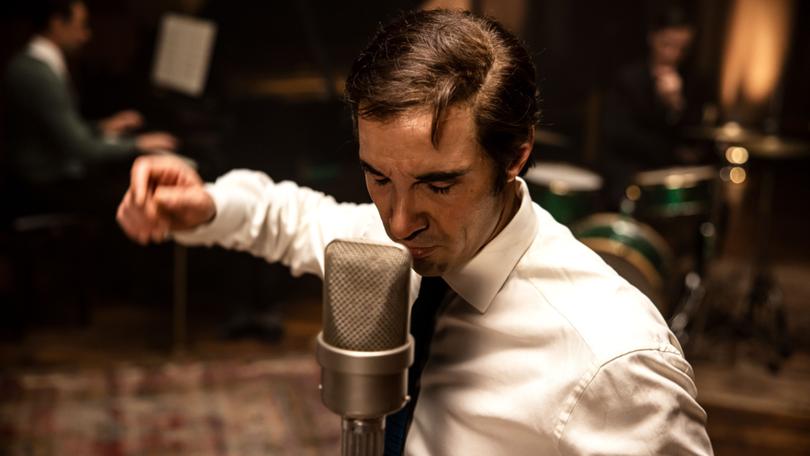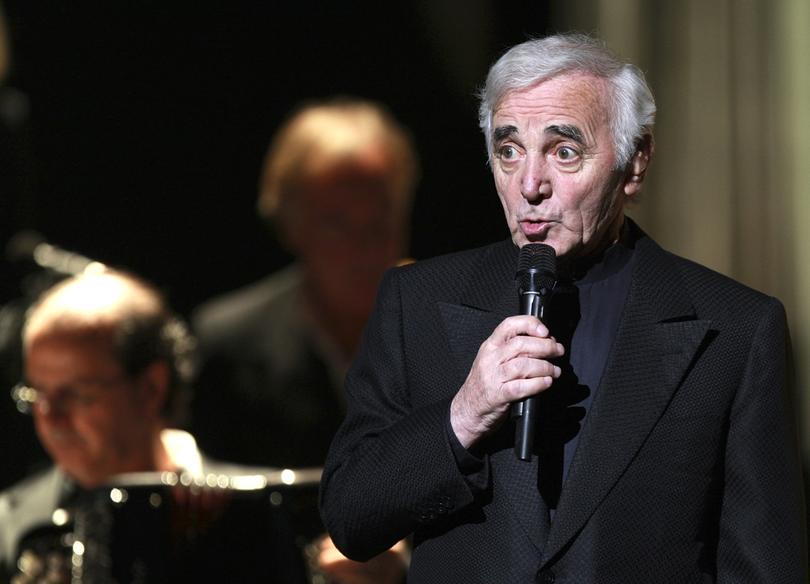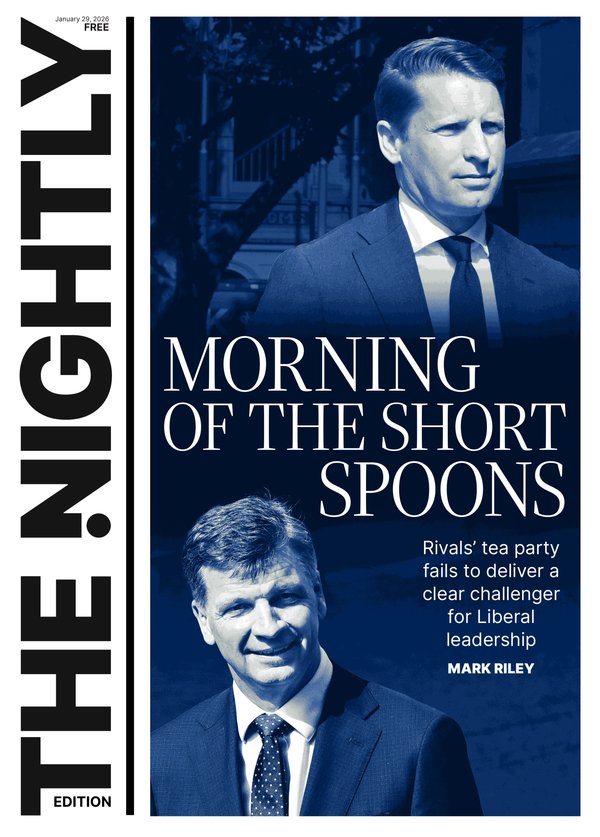Monsieur Aznavour: The voice that echoed through generations is now on the big screens

Unsurprisingly, Monsieur Aznavour, the biopic of French icon Charles Aznavour’s life, is soundtracked to his famous songs, including She, Comme ils dissent and Emmenez-moi.
But it’s another track that really grabs your attention. Dr Dre’s 1999 song, What’s the Difference?, which is played over a montage of Charles’ commercial success and all the material trappings that come with it.
We’re used to seeing hip hop accompanied by images of flash cars, champagne and eye-popping mansions, a showcase of wealth that became a hallmark of the genre’s music videos of that era.
Sign up to The Nightly's newsletters.
Get the first look at the digital newspaper, curated daily stories and breaking headlines delivered to your inbox.
By continuing you agree to our Terms and Privacy Policy.The distinct “dun-dun-dun-dun” of the horns in What’s the Difference? is from Aznavour’s 1966 song Parce que tu crois, and has been sampled by many more artists than Dr Dre. For those who didn’t know Aznavour’s name but recognise that snatch of music, it’s a testament to how far-reaching his influence was over his long and prolific career.
Monsieur Aznavour, out in cinemas nationally this week after a successful run at the French Film Festival, tracks the life of the famed chanteur, played by Tahar Rahim (The Serpent, Un Prophet and Napoleon) from his youth to the heights of his career.
Born Shahnur Aznavourian, he came from a poor family of Armenian immigrants who fled the 1915 genocide and had resettled in Paris by the time Charles came along in 1924. They ran a small restaurant in the 6th arrondissement but money was always tight. They loved art and music, and hid persecuted peoples from Nazis during World War II.

Charles was small in stature and raspy in voice, and ethnic, so he was not considered by the establishment to be a natural musical star. But he had a gift for songwriting (he would be credited with more than 1000 songs) and an energetic stage presence, and was discovered by none other than Edith Piaf.
At the age of 94, he was still touring and played a show in Osaka, Japan, only two weeks before his death in 2018. That Aznavour never retired reflected a core aspect of his character that Monsieur Azvanour co-director Mehdi Idir wanted to capture on film.
“He’s a person that has a very big determination in his mind,” Idir told The Nightly. “He never, ever gives up.”
Growing up, Idir’s parents filled the home with Aznavour’s music. His voice felt part of the family.
One day, Idir was at the home of his friend and producer, Jean-Rachid Kallouche, who is married to Aznavour’s daughter, Katia. The couple had cooked up a storm and mentioned to Idir that Aznavour, who lived in the same building, would join them for the meal.
“This was very impressive for me,” Idir recalled. When Aznavour discovered Idir was a director and had shot many music videos, the singer immediately started asking him about what cameras he used.
“He was maybe 80 years old at the time and for him, everything was interesting,” Idir said. “He was like a geek, a nerd. The very last time I saw him, he had come back from Japan, and we talked about technology too.
“He loved to speak with people and learn something. He was an incredible guy.”
Aznavour had met with other filmmakers about a biopic of his life, but, according to Idir, the late singer never felt seen as he wanted to be. With Idir and his creative partner, Fabien Marsau, who is known professionally as Grand Corps Malade, Aznavour posed the same question to them, “How do you see me?”.
“We say, ‘What we love is the journey of the son of an immigrant that came from a poor family and became internationally, even as we speak about him today, an icon of the francophone, of the French language, in the world’. That’s what we love,” Idir recounted.
“So he said, ‘OK, I want you to make this movie’.”
When Azvanour died in 2018, Idir and Grand Corps Malade put the project aside and worked on other titles instead. But they knew they would do the Aznavour film, so they specifically avoided watching other musical biopics, which had exploded in popularity after the commercial success of Bohemian Rhapsody.
Idir said he didn’t want to be influenced by what contemporaries were doing, but one genre trap he did want to avoid was the non-linearity of jumping back and forth between time periods. He said Aznavour’s life was already complicated enough.

The challenge of capturing an icon while also having known the person is complex. You want to show audiences someone human and multi-dimensional without diminishing the icon they already know.
The production team had access to Aznavour’s personal archives, including family photos and videos, and the notebooks he kept throughout his whole life. But there was another silver bullet that was crucial to the film: Rahim.
In Rahim, Idir recognised shades of Aznavour, including that all-important determination and voracious hunger that pushed the singer to his peak.
“They both came from a poor family, not originally from France, and it’s the love of the work,” Idir explained.
“When you make a movie, it’s like an obsession, you think about it all the time, you have to work all day and all night. Tahar is like that. I never met another (actor) like that.
“He’s a guy that wants to work on each aspect of the movie, it’s all interesting to him. You know that you can push it to the limit with him, and he will never say no. Charles was the same.”
Monsieur Aznavour is in cinemas on May 8

